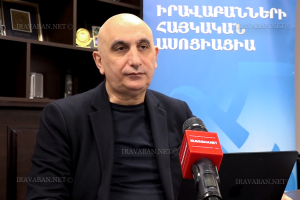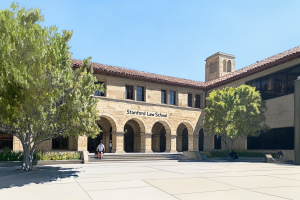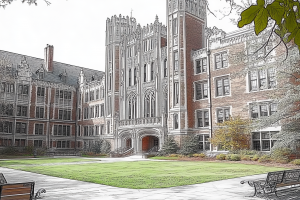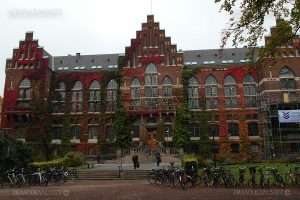Iravaban.net starts “Foreign Law Schools” special project. The first article of the series is dedicated to the Law Faculty of Oxford University. .
The University of Oxford every year invites talented international students from around the world which comprise 40 per cent of the students studying in the university. The students are enabled to study at the world-renowned university which is famous for its achievements and innovations. Oxford is not only a university but also a large scale research center. In order to provide qualitative education the university has excellent conveniences and resources: well known libraries, museums and laboratories. The professional staff of Oxford which also carries out research is composed of scientists invited from all over the world. As one of the leading universities in the world, it also cooperates with more than 80 research institutes among them are the research institutes in the Far East, India, Southern Africa, USA and Latin America.
Interesting Facts about Oxford
Oxford is the oldest university after the universities of Bologna.
In 2006 British and Australian scientists counted the weight of some countries and cities based on the thickness of the Earth’s crust. According to those data Britain weights 24 billion tones and the heaviest city is Oxford.
There are bells in Oxford which ring from 1840 onward.
The most famous graduates of Oxford are:
Margaret Thatcher, Oscar Wilde, Johnathan Swift, John Locke, Thomas Hobbes and others. The graduates of Oxford were also 25 prime ministers of Great Britain.
Law School
The biggest law school of the Great Britain is in Oxford which has 90 members with different positions and more than 50 other lecturers. According to the British Government’s Research Assessment Exercise in 2008 compared to other universities of GB from 2001-2007 the most appreciated scientific activities were implemented in the law faculty of Oxford. The Bodleian law library is considered the biggest research library and one of 2 or 3 most important libraries. It is situated in St Cross building. Other law libraries also exist in college libraries and the most famous of which is the Codington library of All Souls College which is open for all the law faculty students. Big centers for scientific computing are created with the staff for providing education and assistance.
Educational programs
The students of Oxford communicate with their lecturers more in comparison with other students of MA courses in other universities as the education here is carried out not only with lectures and seminars but also with practical part and assistance and meetings with the lecturers. Oxford’s teaching and research staff is made up of scholars from around the world which enables the students to discuss their own work with the leading specialists of their field receiving complete answers about them. A postgraduate one-year bachelor of Civil Law (BCL) is for common law and Magister of Juris is also a Master course (Civil law).
The Law Faculty and the Saïd Business School of the University of Oxford launched an MSc in Law and Finance in October 2010. This new degree is a full-time nine-month programme, offering students with a prior background in law the chance to develop an advanced interdisciplinary understanding of the economic and financial context within which regulatory frameworks seek to operate.
The Master of Science in Criminology and Criminal Justice (MSc) is a nine month full-time programme which equips its graduates with an advanced understanding of crime and criminal justice. The degree comprises core courses in criminological theory and the study of criminal justice, provides training in research design and methodology, and offers students the opportunity to take optional courses in a wide range of subject areas, including policing, sentencing, prisons, the sociology of punishment, restorative justice, crime and the family, human rights, victims, youth justice, risk and security, and the death penalty.
The Master of Philosophy in Criminology (MPhil) is a one-year full-time degree available only to those who have completed the MSc in Criminology and Criminal Justice degree. Admission to the MPhil is conditional upon good performance in the MSc. Students must normally take up their MPhil place straight after the MSc.
The Oxford Diploma in Intellectual Property Law and Practice is a postgraduate vocational course for people embarking on a career in IP law and practice. It is a one-year, part-time course designed to give junior practitioners a grounding in the fundamentals of IP law and practice. It is taught by senior practitioners and academics, and represents a unique collaboration between the Oxford Law Faculty and the Intellectual Property Lawyers’ Association.
Master’s Programme in International Human Rights Law course is offered jointly by the Department for Continuing Education and the Faculty of Law. It is conducted on a part-time basis over 22 months and includes two periods of distance learning via the internet as well as two summer sessions held at New College, Oxford.
Research programs
Oxford has the biggest research program on law in English which is carried out by the community of active 200 students implementing scientific and doctoral research. Students conduct discussions in 18 subgroups during their researches on law. The students of the subgroups on criminology, social-legal research, mental property and European and comparative law researches use the professional centers of the fieldsof the faculty.
The Master of Studies in Legal Research (MSt) is a one-year program which can serve as a first year of Doctorate program (DPhil).
The Master of Philosophy in Law (MPhil) is a one year program which can serve as a first year of Doctorate degree (DPhil) for the students of Oxford BCL or MJur.
The Master of Letters (MLitt) is the research degree one level below the DPhil in the hierarchy of difficulty and originality.
The Doctor of Philosophy (DPhil) is at the apex of the Law Faculty’s pyramid of research degrees. It is a full-time degree. The thesis must make a significant and substantial contribution to its field.
Read other articles:
Law School of Luiss Guido Carli Univeristy
Law School of Central European University
Law School of Harvard Univerity
ZaruhiHarutyunyan
Mariam Zadoyan
Source: iravaban.net









